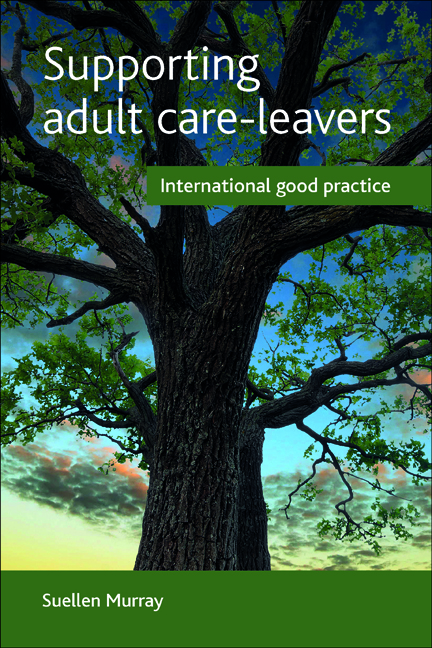Book contents
- Frontmatter
- Author biography
- Acknowledgements
- Contents
- List of abbreviations
- List of tables, figures and boxes
- One Introduction
- Two Care and its aftermath
- Three Public inquiries
- Four Apologies, memorials and other acknowledgements
- Five Reparation and redress
- Six Specialist support
- Seven Access to records and family reunification
- Eight Advocacy and consumer participation
- Nine Good practice in supporting adult care-leavers
- Notes and references
- Select bibliography
- Index
One - Introduction
Published online by Cambridge University Press: 01 September 2022
- Frontmatter
- Author biography
- Acknowledgements
- Contents
- List of abbreviations
- List of tables, figures and boxes
- One Introduction
- Two Care and its aftermath
- Three Public inquiries
- Four Apologies, memorials and other acknowledgements
- Five Reparation and redress
- Six Specialist support
- Seven Access to records and family reunification
- Eight Advocacy and consumer participation
- Nine Good practice in supporting adult care-leavers
- Notes and references
- Select bibliography
- Index
Summary
“I’ve struggled all my life … I’ve always felt I’m not worthy of anything … I drifted in and out of drugs and alcohol and drifted in and out of employment basically all my life.” (Brian, adult care-leaver, 2011)
While some adult care-leavers report positive experiences of growing up in care, others, like Brian, a 60-year-old man who grew up in children's homes in Australia and who is quoted above, reflect on this part of their lives as times of great difficulty and trauma that have had long-term negative impacts. Various inquiries have revealed accounts of abuse and neglect. These experiences of emotional, physical and sexual abuse can result in poor mental and physical health in later life. Often, children experienced a fracturing of family relationships between both siblings and parents and subsequently a lack of knowledge about personal and family history. For Indigenous children, subjected to discriminatory policies of forced removal, this separation could result in disconnection from their community and a loss of knowledge about culture and language. These practices, then, could lead to a loss of sense of identity, social isolation and a lack of emotional and practical support. Limited or disrupted education in some settings has meant that adult care-leavers may also struggle to gain meaningful employment, or have restrictions in their life in a range of other ways.
Generally, childhood experiences can have effects over the life course, so harmful childhood care experiences are likely to have impacts in adulthood. In relation to those removed from their families and communities of origin, such as child migrants and Indigenous children, the fact that there would be long-term impacts is not at all surprising. That the aftermath of an abusive childhood in care could be difficult is consistent with what we know about all childhoods where children have experienced abuse. So, what can be done to assist those negatively affected by their experiences of care as adults? How can we promote health and well-being over the life course for these individuals and their communities? Or, more simply, how can adult care-leavers be best supported? This book attempts to answer this question.
This book is about social policy responses to adult care-leavers such as Brian in five countries across the English-speaking world: Australia, Canada, Ireland, New Zealand and the UK. While acknowledging that these countries have different policy histories, there are also commonalities.
- Type
- Chapter
- Information
- Supporting Adult Care-LeaversInternational Good Practice, pp. 1 - 12Publisher: Bristol University PressPrint publication year: 2015

